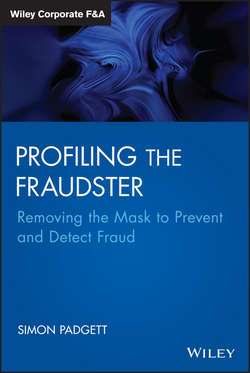Читать книгу Profiling The Fraudster - Padgett Simon - Страница 8
На сайте Литреса книга снята с продажи.
Part I
Occupational Fraud and Corruption
Chapter 1
Introduction to Occupational Fraud and Corruption and Recent Trends
Deception through Breaching Trust
ОглавлениеThe term fraud has come to encompass many forms of misconduct. Although the legal definition of fraud is very specific, for most people like you and me, antifraud professionals, regulators, the media, and the general public alike, the common use of the word is much broader and generally covers any attempt to deceive another party to gain a benefit. Expense fraud, forgery, counterfeiting, identity theft, theft of inventory by employees, manipulated financial statements, insider trading, Ponzi schemes, mortgage fraud – the range of possible fraud schemes is actually endless but at their core all involve a violation of trust. It is this violation that, perhaps even more than the resulting financial loss, makes such crimes so harmful. For businesses to operate and for commerce to flow freely, organizations must entrust their employees with resources and responsibilities. So when an employee defrauds his or her employer, the fallout is often especially harsh. The focus of this book is occupational fraud schemes in which an employee abuses the trust placed upon him or her by an employer for personal gain. The formal definition of occupational fraud, taken from the Association of Certified Fraud Examiners (ACFE) website, http://www.acfe.com/fraud-101.aspx is
the use of one's occupation for personal enrichment through the deliberate misuse or misapplication of the employing organization's resources or assets.
While this occupational fraud category is but one facet of the vast overall fraud universe, fraud in the workplace is huge and covers a wide range of employee misconduct. It is, without doubt, a material threat faced by all organizations and their employees worldwide.
